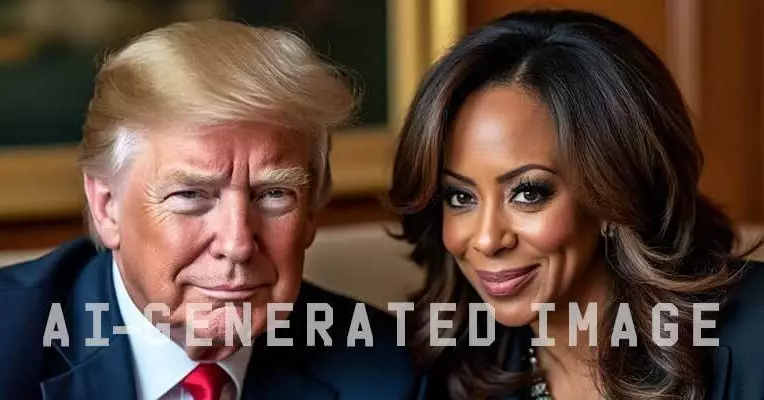When looking at the recent incident where Elon Musk shared an image depicting Kamala Harris as a “communist dictator,” it is evident that there are significant limitations in the AI technology used to generate such images. The fact that Harris was inaccurately portrayed in this image raises questions about the reliability and precision of AI image generators in capturing the essence of political figures.
It is concerning to see that many AI-generated images of Kamala Harris fall short in capturing her true likeness. The inability of AI to accurately depict Harris, as highlighted by various users, raises doubts about the effectiveness of these image generators. The comparison of Harris to other individuals, such as Eva Longoria or Michelle Obama, further emphasizes the shortcomings of AI in recognizing and representing the unique features of Harris.
The contrast between AI-generated images of Kamala Harris and Donald Trump is stark. While images of Trump are depicted fairly consistently and accurately, those of Harris are often portrayed with varying features, hairstyles, and skin tones. This disparity raises questions about the underlying biases and limitations within AI image generators when it comes to representing different political figures.
The use of diffusion models in modern AI image generators presents challenges in accurately capturing the likeness of individuals like Kamala Harris. These models rely on a vast dataset of labeled images, which may not adequately represent individuals who have not been widely photographed or documented. The CEO of Freepik, Joaquin Cuenca Abela, acknowledges this discrepancy, noting that Harris has fewer well-labeled pictures compared to Trump, which hinders AI’s ability to generate accurate images of her.
The limited availability of well-labeled images of Kamala Harris poses a significant obstacle for AI image generators in accurately depicting her likeness. The disparity in the number of images available for Harris compared to Trump further exacerbates the challenges faced by AI models in recognizing and portraying lesser-known political figures. As AI technologies continue to evolve, it is crucial to address these data limitations to ensure more accurate and unbiased representation of individuals like Kamala Harris.
The recent incident involving the inaccurate depiction of Kamala Harris in AI-generated images highlights the limitations and challenges faced by current AI image generators. The disparity in depicting Harris compared to other political figures like Donald Trump underscores the need for greater diversity and accuracy in the datasets used to train AI models. As AI technologies advance, it is essential to address these issues to ensure more reliable and fair representation of individuals in the digital realm.


Leave a Reply